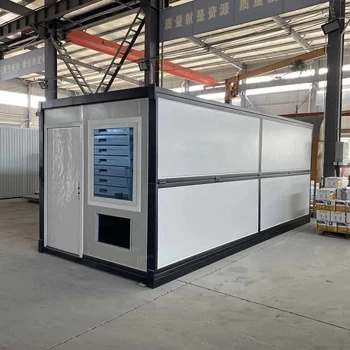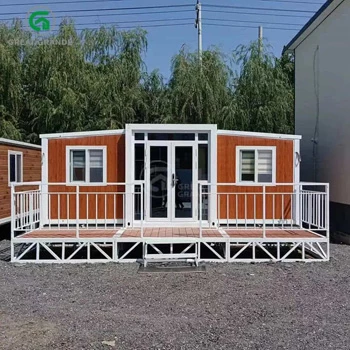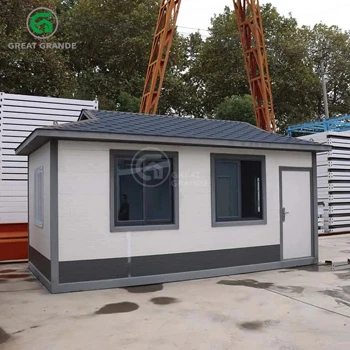In recent years, foldable container houses have gained significant attention and popularity due to their versatility, sustainability, and innovative design. This article explores the compelling reasons why choosing foldable container houses could be a game-changer in the realm of modern architecture and housing solutions.
1. Flexibility and Mobility
Foldable container houses are inherently mobile and can be easily transported to various locations. This feature makes them ideal for temporary housing solutions, disaster relief, and remote area deployments. The ability to fold and unfold containers allows for efficient shipping and deployment, offering unparalleled flexibility compared to traditional construction methods.
2. Cost-Effectiveness
One of the primary advantages of foldable container houses is their cost-effectiveness. Compared to building a traditional house from scratch, using containers significantly reduces construction costs. Moreover, the modular nature of these houses allows for scalability—you can start with a basic unit and expand as needed over time, minimizing upfront investment.
3. Quick Assembly and Disassembly
The assembly of foldable container houses is remarkably quick and straightforward. Once delivered to the site, they can be set up within hours or days, depending on the complexity and size of the structure. This rapid deployment is crucial for urgent housing needs in emergencies or for businesses requiring temporary on-site facilities.
4. Environmental Sustainability
Sustainability is a key driver in modern architecture, and foldable container houses excel in this regard. Repurposing shipping containers reduces the demand for new construction materials and minimizes waste. Additionally, these houses can incorporate eco-friendly features such as solar panels, rainwater harvesting systems, and energy-efficient appliances, further reducing their environmental footprint.
5. Design Versatility
Despite their industrial origins, foldable container houses offer ample opportunities for creative and customizable designs. Architects and homeowners can modify containers to suit specific aesthetic preferences and functional requirements. From single units to multi-story configurations, the adaptability of containers allows for diverse architectural expressions.
6. Durability and Safety
Shipping containers are built to withstand harsh marine environments, making them inherently durable and robust. When properly maintained, they offer excellent protection against natural elements such as wind, rain, and even earthquakes. Safety features such as fire-resistant coatings and secure locking mechanisms ensure peace of mind for inhabitants.
7. Adaptability to Various Uses
Beyond residential applications, foldable container houses are suitable for a wide range of uses including offices, retail spaces, classrooms, and recreational facilities. Their modular nature facilitates easy customization and reconfiguration, making them suitable for evolving business needs or community projects.
8. Global Accessibility
The standardized dimensions of shipping containers ensure global accessibility and compatibility with existing transportation infrastructure. This universal compatibility simplifies logistics and makes it feasible to deploy container houses in remote or challenging locations where traditional construction methods may be impractical.
Conclusion
In conclusion, choosing foldable container houses represents a forward-thinking approach to modern living and construction. Whether for individuals seeking affordable housing solutions, businesses requiring flexible workspace options, or humanitarian organizations responding to crises, the benefits of foldable container houses are clear. From cost-effectiveness and sustainability to versatility and rapid deployment, these innovative structures offer a compelling alternative to conventional building methods.
Embracing foldable container houses not only meets immediate housing needs but also supports sustainable development goals and promotes resilience in the face of global challenges. As the world continues to innovate in architecture and construction, foldable container houses stand out as a practical and promising solution for the future of housing and infrastructure.






